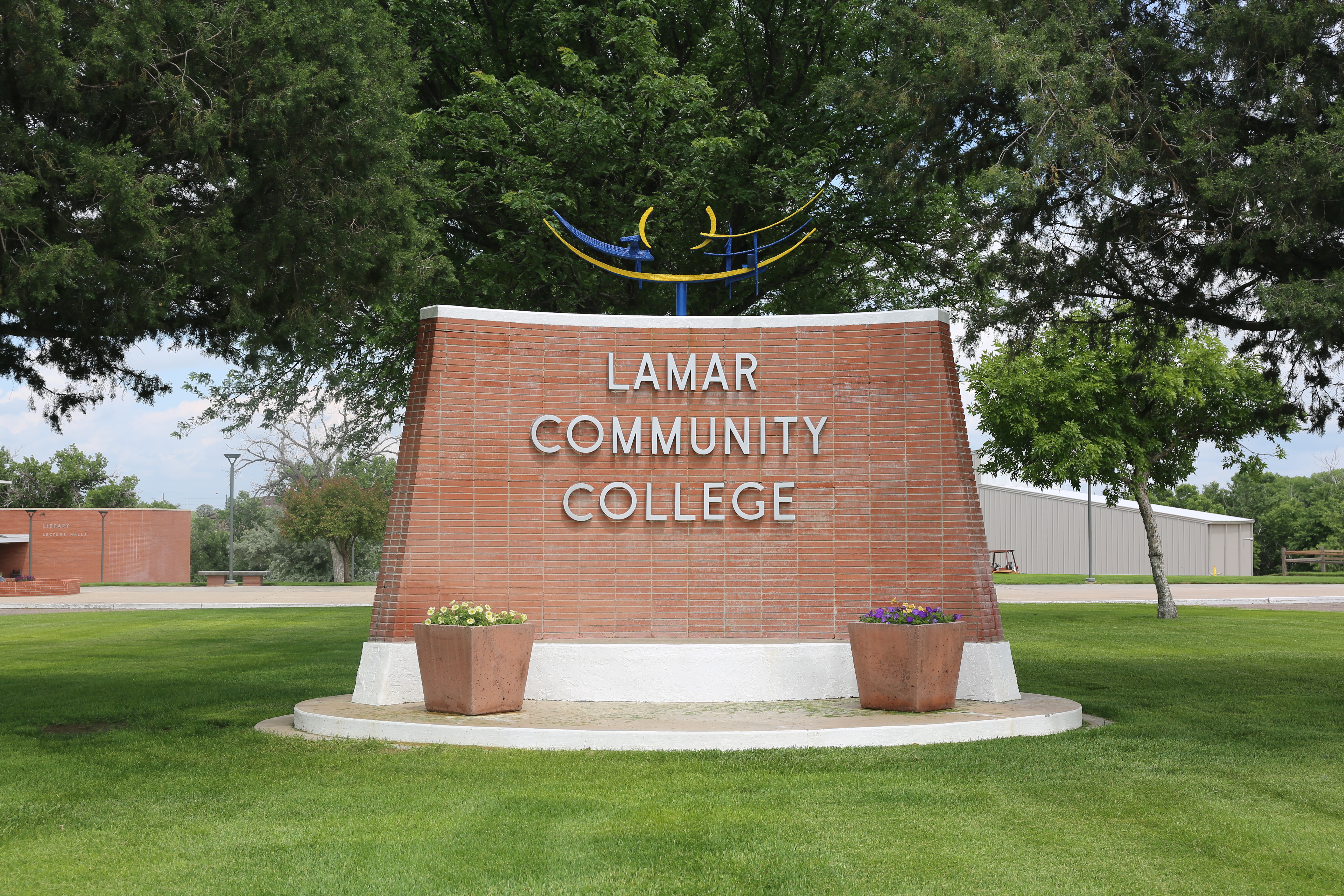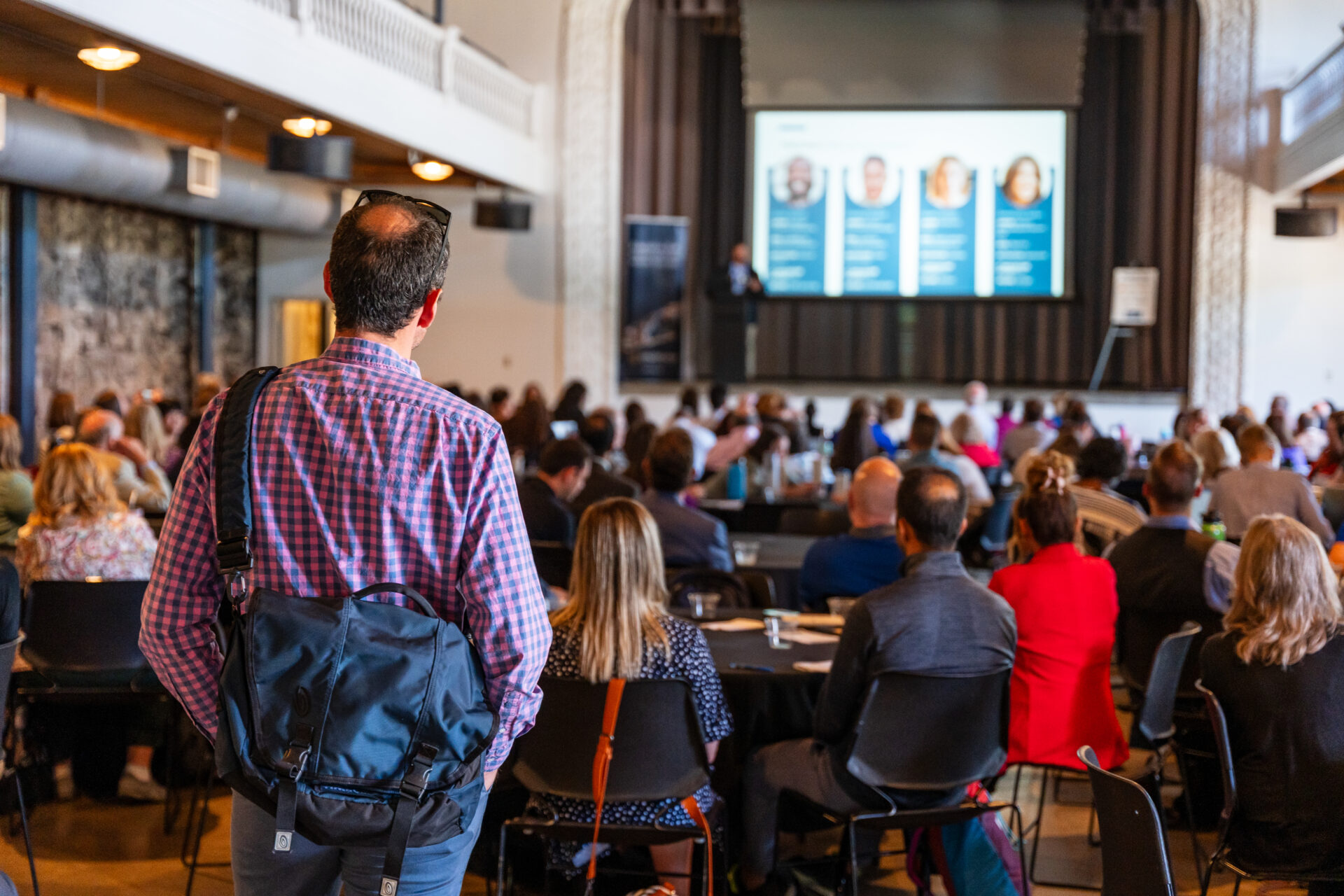For Colorado Community College System (CCCS) chancellor Joe Garcia, supporting adult learners is not just an important institutional mission—it’s a personal one.
“My mom, like so many young Latina women, didn’t have the opportunity to go to college,” he said. “So, she talked to us about it. We always had books in the home. She read to us; she took us to museums.”
After her five children graduated college, Garcia’s mother went back to school at the age of 56, eventually earning her bachelor’s degree seven years later.
“We know there is talent like that out there,” he said. “Individuals who have the ability and the motivation—they often just don’t have the opportunity. We know our state and our country will be better off if we can better serve those students.”
That theme would be echoed many times during the first in-person Chancellor’s Summit on Adult Education, an annual convening hosted by CCCS that brings together hundreds of college and workforce development practitioners across the state. Sponsored by the Lumina Foundation, the Council for Adult and Experiential Learning, and CollegeAPP, the summit featured three keynote presentations and 20 short sessions on promising practices in the field.
“Adult learners are counting on us to make education and training more accessible, affordable and relevant to their lives,” Chancellor Garcia told the attendees. “And we are counting on them to power our economy in the years ahead.”
Fostering a Sense of Belonging
Although community colleges traditionally serve higher numbers of adult students compared to four-year institutions, the population has seen large declines since the pandemic. Pulled away by work and family—and by higher-paying, entry-level jobs—students ages 25 and older are still under-enrolling in Colorado and across the country compared to previous years, Chancellor Garcia said.
When we foster feelings of belonging among our students, we promote a number of important outcomes.
To entice them back, colleges are increasingly focused on improving students’ sense of belonging, said Dr. Royel Johnson, an associate professor at the University of Southern California (USC). As the Director of Student Engagement at the USC Race and Equity Center, he leads large national surveys gauging the experience of adult learners.
“What we know from research is that when we foster feelings of belonging and feelings of connectedness among our students, we promote a number of important outcomes,” he said in his keynote address. “They’re more likely to succeed academically; they’re more likely to feel efficacious about their abilities, and they report higher level of wellbeing.”
Compared to their white peers, students of color often feel more marginalized on campuses. That’s especially true for adult learners of color, who often balance caregiving, work, and other obligations on top of school, Dr. Johnson added.
“We know from research that it’s difficult to belong when you are preoccupied with basic needs and security,” he said. “How are we marshalling resources at our campuses? What are the policies in the classroom that don’t penalize students for navigating realities of being a parent? That’s how we begin to design curriculum and classrooms in ways that are responsive to students.”
As a young Indigenous girl, Dr. Denise Henning experienced this marginalization directly. In her keynote address, she recounted how her first-grade teacher reprimanded her for coloring leaves as purple instead of green.
“That experience was life-changing, and I’ve carried it with me as a vivid memory,” Dr. Henning said, a former president of three community colleges and the current director of the UNCW/3C Collaborative. “I learned that I did not fit, and that my differences—translated in my five-year-old brain—were lesser.”
To ensure Indigenous students feel truly included and valued, educators must find ways to honor and adapt to diverse learning styles, Dr. Henning said. Allowing students to take oral exams instead of written, for example, drastically improved pass rates in a culinary course offered by her previous community college.
“If you define educational institutions as a pool of water, every student should be able to see themselves reflected there,” she said. “Committed educators must start accepting Indigenous and alternative ways of seeing the world.”
Piloting Promising Practices
The summit also showcased projects underway to recruit and retain adult learners, from instituting flexible and remote schedules to making welcome centers more inviting and accessible.
Many of the sessions focused on pilots funded through the REACH Collaborative, a Lumina Foundation initiative that aims to increase credential completion rates among adult students of color. Lumina awarded the CCCS Foundation a $1 million grant in 2021 to test out and potentially scale solutions at eight CCCS colleges.
Beau Green and Megan Cuddihee Dempsey, two administrators in the Community College of Aurora, presented on their work to address students’ basic needs. While housing remains the most urgent challenge facing CCA students, the college has overhauled its food pantry services and now gives out free hygiene kits to make college a “one-stop-shop” for busy students.
“What we’ve chosen to do is to pour on supports in areas where we have the ability to make a difference,” said Green, a trained social worker. “Families are able to reallocate their budget and put more of their monthly finances into things like housing.”
With support from Lumina, CCA also stood up a scholarship program specifically for student parents that will be funded through 2026. The program is already making an impact: scholars’ GPAs have outpaced the general CCA student population, and graduation and retentions rates are more than 12% higher than their peers.
“We’re very happy with these results,” said Dempsey, noting the pilot learnings will be shared with all CCCS colleges. “All we did was give our students a fair playing field to work from. It’s really about stabilizing student parents.”
Expanding Pathways to Possibility
The summit ended with a presentation on “stackable” pathways, an emerging model that has been shown to support adult learners. In these programs, learners can earn consecutive certificates—or consecutive certificates and degrees—to add to their skillset and qualify for higher-paying jobs.
Analyzing data from Colorado and Ohio, Dr. Lindsay Daugherty, a senior policy researcher with the RAND Corporation, and Dr. Peter Bahr, an associate professor at the University of Michigan, found that students who “stacked” on previous credentials did see wage increases, especially in high-demand fields like information technology or manufacturing. But there’s more work to expand these opportunities to low-income groups, Dr. Daugherty said.
“There’s a lot of administrative burden for students,” she explained. “They don’t know that they can get credit for prior learning. They don’t know how to make it from the non-credit to credit. This is another area where Colorado is doing a ton to make it more systematic across the state. There’s a lot of progress.”
It’s this kind of systemwide collaboration that will truly open doors for adult students, said Dr. Landon Pirius, CCCS vice chancellor for academic and student affairs. As he closed the summit, he asked attendees to think about who is benefitting from college—and who is getting left behind.
“Ultimately, our goal is to transform lives and communities,” he said. “I challenge you to think critically and create collectively the conditions for all students to have a sense of belonging and to thrive.”


